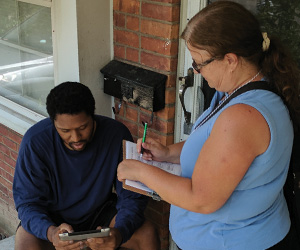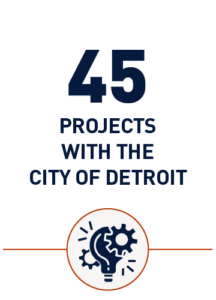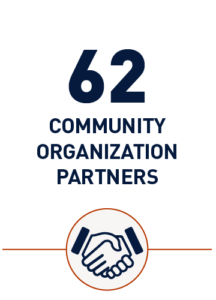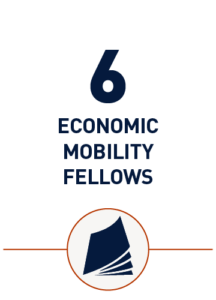Back to the 2021 impact report

Poverty Solutions continues to work closely with city officials, service providers, faculty researchers, nonprofit organizations, neighborhood groups, and resident leaders in Detroit on a variety of projects aimed at poverty prevention and alleviation. Highlights from the Detroit Partnership on Economic Mobility, a collaboration between Poverty Solutions and the Detroit mayor’s office launched in 2018, include:
- outreach campaigns to ensure Detroit residents received stimulus checks and the expanded Child Tax Credit during the pandemic,
- advising on evidence-based interventions to improve access to affordable, quality housing in the city,
- assessment of labor market factors and barriers to employment, and
- six economic mobility fellowships to support city staff on issues like homelessness response, digital inclusion, and spending American Rescue Plan Act funds.
Amplifying Detroiters’ Voices
 Listening to community partners is a priority in all of Poverty Solutions’ work. Consistent with this priority, Poverty Solutions works with the Detroit Metro Area Communities Study (DMACS), a panel study that draws upon state-of-the-art scientific methods to provide the most representative insights available on issues that matter to Detroit residents. Over the course of the past five years, DMACS has administered 14 surveys and disseminated over 20 reports outlining Detroiters’ views on crime and policing, COVID-19 vaccines, the impact of recent investments in the city, transportation and mobility, housing, and more.
Listening to community partners is a priority in all of Poverty Solutions’ work. Consistent with this priority, Poverty Solutions works with the Detroit Metro Area Communities Study (DMACS), a panel study that draws upon state-of-the-art scientific methods to provide the most representative insights available on issues that matter to Detroit residents. Over the course of the past five years, DMACS has administered 14 surveys and disseminated over 20 reports outlining Detroiters’ views on crime and policing, COVID-19 vaccines, the impact of recent investments in the city, transportation and mobility, housing, and more.
DMACS researchers partner with city government, philanthropy, nonprofits, and community-based organizations to co-develop survey questions. Partners also help share the analysis so it gets into the hands of policy decision-makers. Importantly, DMACS often repeats questions among their sample of respondents to see how attitudes toward different issues evolve over time.
An essential ingredient to developing good policy is understanding what people want and need and how they experience their lives. At a really basic level, this is the government’s job. A lot of people don’t have an opportunity to articulate their needs, and they deserve to be represented in the policies that get made.
—Elisabeth Gerber, professor of public policy and co-principal investigator of DMACS
Detroiters’ Priorities for Economic Mobility
In September 2020, Poverty Solutions published “Investing in Us: Resident Priorities for Economic Mobility,” which lifted up more than a decade’s worth of input from Detroit residents on how to increase economic mobility and decrease poverty in their city. The report was the culmination of a one-year, community-based research project that included focus groups with residents and the review of nearly 400 sources of information on how Detroiters view the connections between economic mobility and housing, education, work opportunities, environmental conditions, transportation, and other issues. The research aims to provide policymakers, philanthropic organizations, nonprofits, and other service providers with clear guidance on how Detroiters define economic well-being and what strategies they think will work best to increase economic mobility. In 2021, Poverty Solutions partnered with four Detroit organizations to provide funding and technical assistance to support and evaluate projects that implement recommendations from “Investing in Us.”
“The research world produces a lot of data, indicators, metrics, and maps to tell us how people are doing and how public policy might respond to the need. Often missing from this picture are the voices of residents themselves. Our goal with this project was to listen to residents, and make the voices of Detroiters our primary source of data,” said Afton Branche-Wilson, assistant director of community initiatives at Poverty Solutions and lead researcher for “Investing in Us.”
When we need thought partners in the work and friends in the fight and boots on the ground, we think of Poverty Solutions.
—Nicole Sherard-Freeman, City of Detroit group executive for jobs, economy, and Detroit at Work



